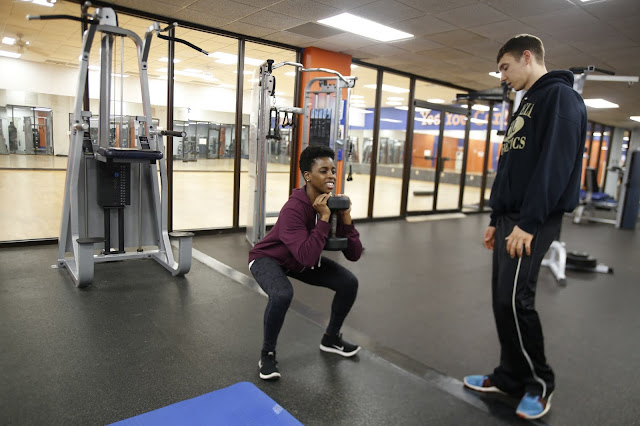Exercise And Sleep: What’s The Connection?
July is Better Sleep Month, so it’s a good time to consider the relationship between the time you spend in your bed and the time you spend in the fitness center. Many of us have heard that exercise improves sleep, but is that all? Let’s look at three important keys to understanding and making the most of the exercise-sleep connection.
1. Exercise helps you sleep.
Numerous studies have shown that people who exercise regularly sleep both longer and better than people who are mostly sedentary. In fact, exercise is the most natural, doctor-prescribed way to improve insomnia without sleep medication.
It makes sense, doesn’t it? Think of a day you were especially active and how you “slept like a baby” that night. That’s not to say you need to work out at the gym to the point of exhaustion every day just to have a good night’s sleep.
Get in the recommended 30 minutes a day, 3 or 4 days a week, and you should see improvements in how long and how well you sleep. Keep in mind that, just as changes to your fitness don’t happen overnight, changes to your sleeping patterns may take a few weeks or months to set in.
2. Better sleep equates to more energy for workouts (and vice versa).
Getting enough sleep also impacts our energy levels. Not only will this help you get through that boring afternoon meeting at work without dozing off; it will help you hit your workout harder, burn more calories, and see faster results. Again, it may take a few weeks or quality sleep before you start to notice a difference in your usual energy level.
On the other hand, studies show that poor sleep can have an immediate effect on your performance, both in an outside the gym. Regardless of the quality of your sleep, make sure you’re giving yourself 7 to 8 hours of it a night.
3. The timing of exercise has an impact on sleep quality.
Exercise can help you sleep better – but timing is important. There’s a reason most people workout first thing in the morning or in the later afternoon rather than right before bed time. Exercise speeds up your heart rate and metabolism and gives you an energy boost that can last several hours after a fitness gym session, so working out too late can make it difficult for you to fall asleep, no matter how exhausted you feel.
Researchers recommend exercising at least 3 hours before bedtime, and preferably 6 hours, since it takes about that amount of time for your body temperature to drop to the level that’s ideal for sleep.
Interestingly, getting in a morning workout may even have a scientific advantage over afternoon workouts. At least one 2013 study, done by Appalachian State University in North Carolina, showed greater sleep quality among those who choose to hit the gym in the early morning hours. If you’re not a morning person, we understand. But if your sleep could use some improvement, why not give it a try?
There’s a close relationship between how active you are and how well you sleep, and both are important to maintaining the healthy, fit lifestyle you’ve committed to. Get in your workouts and get enough sleep, and you’ll see improvements in your sleep quality, energy, workouts, fitness, and many other aspects of your life. Get your 1 day pass today!





Comments
Post a Comment